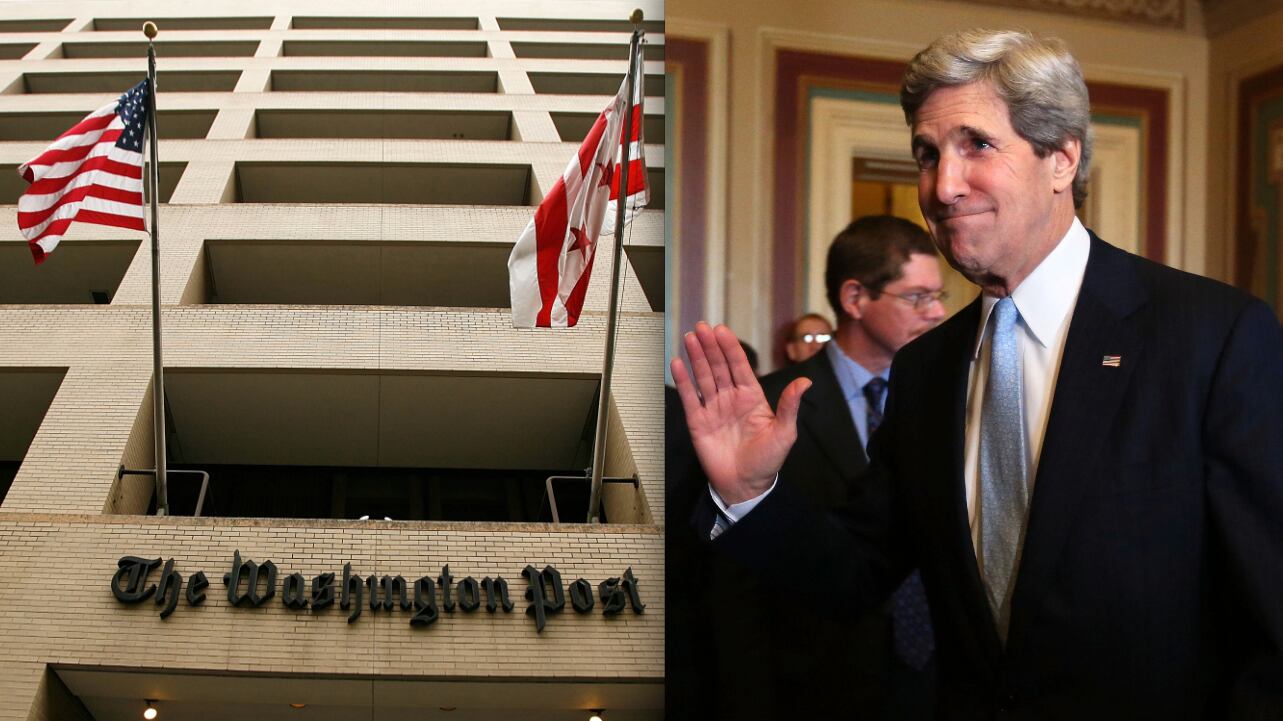The Washington Post editorial board lamented over the weekend that American Secretary of State John Kerry continued to vigorously engage the still moribund Israeli-Palestinian peace process. The board, rightly, notes that other pressing crises—particularly in Egypt and Syria—deserve the Obama administration's attention. But this is not a zero sum game, and the Israeli-Palestinian conflict merits attention for the same reason the Egyptian crisis necessitates a more activist role than in Syria's: because of American government involvement with players in the conflict. The Israeli military, which, among other defense tasks, carries out the occupation of the Palestinian territories, gets more aid than any other country in the world—supplying about a fifth of Israel's defense budget—and the U.S. acts as Israel's virtually sole ally and guarantor in international politics.The Post ignores completely the U.S. role in the conflict—its unflinching support for Israel and modest, uneven support to the Palestinian Authority—and ends on this snarky note:
We’d like to believe that he recognizes that a peace deal is not feasible now and is aiming at useful interim steps, such as the economic development plan for the West Bank he has suggested or Israel scaling back settlement construction and yielding control of more West Bank territory. Those would be achievements worth an investment of time, assuming one has written off the possibility of American leadership beyond Jerusalem and Ramallah.

Leave aside that economic gains are crippled by the occupation itself and that the settlement movement holds sway in Israel's ruling coalition, and read that last line again. What the Post seems to be saying is that the Obama administration shouldn't spend any time working toward progress on Israeli-Palestinian peace, that this should be so low a priority as to deserve attention only when those other crises require hardly any focus at all. The Post editorial board, however, gives the conflict plenty of attention, most of it lately devoted to imploring the Obama administration to draw closer to Israel's Iran positions; deriding Palestinian efforts to join multilateral organizations; and defending the Israeli settlement enterprise—a contravention of international laws—as no big deal.
The Post implicitly asks that the U.S. separate this sort of bountiful support to Israel and moves against its perceived enemies from progress toward alleviating Palestinian statelessness. But the cost to the American taxpayer and effort spent shielding Israel can't be justified for an ally, no matter whom, that holds millions of people in indefinite—or, worse yet, increasingly permanent—subjugation. The Post, among other Israel advocates in Washington, needs to wake up to this reality: the absence of peace with the Palestinians drives Israel's growing isolation, and the U.S. will suffer more for its closeness to Israel if the trend persists. In other words, if the two-state solution dies and the U.S. maintains its guaranteed backing of Israel, U.S. interests—not to mention values—are likely to be compromised.
The Post editorial page has a well-deserved reputation for taking a traditional "pro-Israel" view, where injustices against Palestinians can be shrugged off ad infinitum, until Israel—or the Post, perhaps—become confident enough to deign to the Palestinians' liberation from decades of military rule. That perspective would be more palatable if America weren't already up to its neck in the conflict. If the Israeli-Palestinian conflict doesn't deserve the attention required to make progress toward a peace deal, perhaps it doesn't deserve our taxpayer dollars and international political capital either. But the Post wants to have its cake and eat it too.






